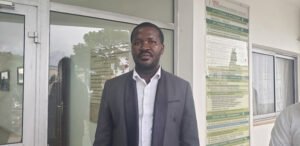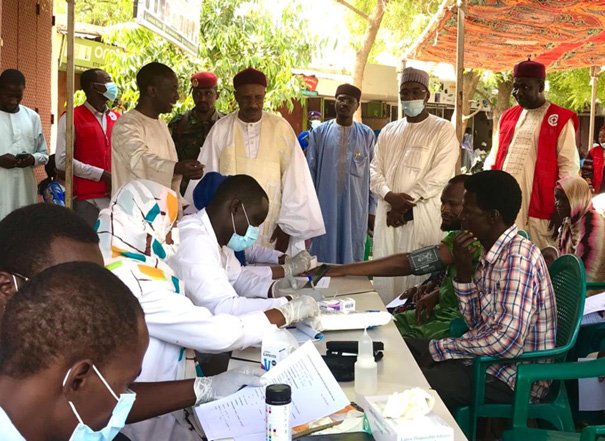Access to care : WHO experts’ recommendations

A workshop organised by WHO was held in Douala last week to review WHO’s response strategies to humanitarian crises and public health emergencies in Cameroon.
Ghislaine DEUDJUI
Meeting in Douala from 3 to 5 May 2023, WHO experts and its partners (about 40) agreed to find solutions to improve the provision of care and provide a sustainable response to the humanitarian crisis and public health emergencies in Cameroon.
At the initiative of the World Health Organisation (WHO), this three-day meeting enabled participants to propose ideas based on the various crises affecting Cameroon, including: cholera, Covid-19, floods, conflicts, etc. They were able to see that Cameroon has been facing many challenges in recent years. Eight out of ten regions are directly and indirectly affected by crises.
Growing insecurity has led to a dysfunction of the already fragile health system, limiting access to primary health care, following the closure of health facilities and the reduction of services. In addition, operational deployment in the affected areas remains very difficult. As a result, accessibility to quality health care is becoming uncertain. “These areas also face epidemic risks and the difficulties revealed are found in regions that are rather stable or unstable where chronic food insecurity is rife, as well as natural disasters such as floods that destroy health infrastructures and undermine the entire health system,” they note.
Recommendations Faced with this situation, WHO experts found it urgent to think about a resilient response by focusing on the main priorities for strengthening the health system. In response to the question, “how to sustainably improve the response to the humanitarian crisis and public
health emergencies in Cameroon”, a range of recommendations were made. These include To reflect on the integration of FCAs among health personnel through the Ministries of Decentralisation and Public Health in order to retain them; to strengthen the partnership
of religious NGOs and WHO in order to facilitate their penetration in difficult access zones in humanitarian
contexts; to strengthen local capacities for collaboration with national NGOs in order to improve the response to crises. During this meeting, the WHO experts, touching on issues related to mental health and gender-based violence (GBV), proposed Collaboration between NGOs and the government to place orders for psychotropic drugs (medication used to treat psychological disorders) in less than a year; to support the purchase of certain medications for the management of GBV survivors;
to support the training of GBV health staff in health facilities; to advocate to the Ministry of Health for gender representation in health facilities in order to improve the management of GBV survivors and to carry out the mapping of GBV service providers in all regions, etc.
Health sector The three-day meeting reminded us of the need to work on important issues related to health in order
to know how to respond to the population in difficulty. During this meeting, the WHO experts found it essential to involve certain partners
indirectly linked to the health sector. “Many efforts are being made. Moreover, the partnership is not limited to the health sector. It involves other sectors. Because it is a question of seeing how to respond in a sustainable way, especially
in a context where crises involve conflicts. We also know that globally in a conflict situation our health action contributes to peace…”, said Dr Ernest Dabire, Senior Health Emergency officer, Dakar HUB WHO Africa.















